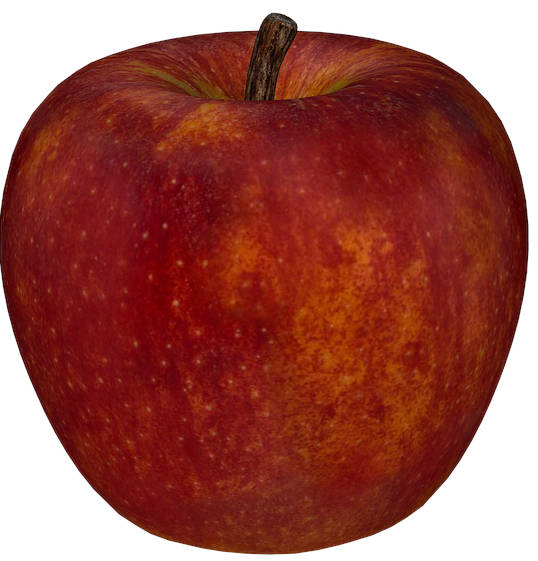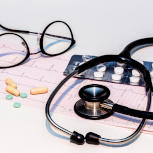Nutritional Therapy for Thyroid Health
and Hypothyroid Support
What is Hypothyroid?
This article discusses clinical and sub-clinical hypothyroid
conditions and applicable nutritional support measures.
The thyroid is a small butterfly-shaped gland, located in the
neck, wrapped around the windpipe, and is located behind and below the Adam's Apple area. The
thyroid produces several hormones, of which two are key: triiodothyronine (T3) and thyroxine (T4).
These hormones help oxygen get into cells, and regulate metabolism. The hypothalamus in the
brain releases Thyrotropin-releasing Hormone (TRH) which tells the pituitary gland to release
Thyroid Stimulating Hormone (TSH). The circulating TSH in your bloodstream is what tells the
thyroid to make thyroid hormones and release them into your bloodstream. This feedback loop is
affected by emotions, stress nutritional status and the state of health of the entire nervous
and endocrine system.
T3 is the most potent thyroid hormone and is required
throughout the body for cell metabolism. T4 must be converted to T3 in order to interact in
the cells metabolically. T3, however, has an extremely short life span so the thyroid produces
significantly more T4 than it does T3. Most synthetic thyroid hormones are primarily if not
exclusively T4 while natural thyroid hormones, derived from animal sources contain a balanced
ratio of T3 and T4. If the patients body is unable to convert T4 to T3, the synthetic T4 will
not be effective in treating the hypothyroid condition and the symptoms will still be present.
If you are taking thyroid medication and still don't feel better, contact your physician and
ask him to consider prescribing a natural thyroid product like Armour Thyroid, Nathroid or
Westhyroid.
Diminished thyroid activity, or hypothyroidism, decreases
metabolic rate, makes it impossible to assimilate food properly, depresses the activity of
other glands in the body and ultimately adversely affects every cell and tissue in the body.
Some problems associated with thyroid imbalance or malfunction
include weight problems, chronic fatigue, fibromyalgia, frequent illness, feeling cold all the
time, heart and arterial disease, and feeling down or depressed.
The causes of hypothyroidism include:
- Exposure to radioactive fallout (which is likely to contain radioactive iodine)
- Over consumption of isoflavone-intensive soy products, such as soy protein, soy powders
- Some drugs, such as lithium and the heart drug cordarone,
- A deficiency of iodine in the diet
- Radiation treatment to the head, neck or chest.
- Over consumption of uncooked "goitrogenic" foods, such as brussels sprouts, broccoli, rutabaga, turnips, kohlrabi, radishes, cauliflower, African cassava, millet, babassu fruit, cabbage and kale
- Surgery
- Radioactive iodine treatment
- Chronic Stress
- Exposure to Water pollutants including Fluoride
- Smoking
Some alternative physicians place a lot of emphasis on the
adverse affects of chlorine, bromine and fluorine in the water supply, toothpaste and other
sources on the thyroid gland. The rationale is that chlorine, bromine and fluorine are very
near iodine on the periodic chart and
can act like iodine from a chemical
perspective. These elements, therefore, chemically replace
iodine and interfere with
iodine metabolism.
As a preventive measure it makes sense to filter water to remove these chemicals and to avoid
exposure from other sources. Fluorides are commonly added to toothpaste and drinking water and
bromides are added to bread products and used to treat water in hot tubs and swimming pools.
In addition to chemical and environmental factors, thyroid
function can be depressed by imbalances in other endocrine glands. Increased insulin levels
from sugar handling stress can
depress thyroid function and increase
cortisol levels. Increased
cortisol levels caused by all
forms of stress can depress
thyroid function as well. Hypoadrenia
or adrenal exhaustion often preceeds or occurs with a hypothyroid state. To correct
hypothyroidism by addressing the cause, one must engage in an effective
stress reduction
strategy, correct sugar handling stress
and provide adrenal support.
The Diagnosis of Hypothyroid
The diagnosis of hypothyroid function has been a subject of
difficulty and debate. The blood tests for T3, T4 and TSH have improved over the years and are
useful diagnostic tools. In some cases, the blood tests may appear normal or near normal and
the patient still has symptoms of hypothyroid function. Because of this, Dr. Broda Barnes
(in the 1940's when blood test technology was less well developed) developed the basal
temperature test as an alternative method of detecting hypothyroid function.
The basal temperature test is a simple test that you can do
yourself. Remember that the basal temperature test is a measurement, not a diagnosis. There
are other factors that can alter the results of the basal temperature test. These include
hypoadrenal function, illness (which can elevate temperature) and menstruation
(which elevates temperature).
- Shake the thermometer down and place it by your bed before you go to sleep at night.
- Just before rising in the morning and before you have engaged in any bodily movement, place the thermometer in your mouth and lie still for five minutes. Then record your body temperature.
- The normal body temperature recorded in the mouth is between 97.8 to 98.2 degrees F.
- A temperature below 97.8 degrees F may indicate an underactive thyroid.
- A temperature above 98.2 degrees F may indicate an overactive thryoid.
Body temperature can be elevated by an inflamatory response
as with a fever when an infection is present. Body temperature can also be elevated during
the menstral cycle in women. The best time for a woman to do the temperature test is on the
second or third day after the menstral cycle.
Support for Hypothyroid Conditions
The best treatment for any disorder is to address the causes.
The medical treatment is to prescribe a synthetic form of T4 and experiment with the dose until
the blood TSH level is normal. One point of view is that the body is defective and the patient
will have to compensate by taking T4 for the rest of their life. Another point of view is that
T4 and possibly T3 or a natural thyroid product should be supplemented to get the TSH level
down into the lower normal range. The intent is to give the thyroid gland a rest period.
The doctor then gradually decreases the dosage of the thyroid medication to allow the thyroid
gland to resume natural operation. Anecdotal evidence from doctors who apply this philosophy
indicates that it works about half of the time.
Another point of view is that thyroid disorders of most if not all
types are often caused by iodine
deficiency. This view is supported by a minority of medical doctors
and alternative practitioners who apply
orthoiodosupplementation as a primary
therapy. They advocate using high doses of iodine to displace the fluorides and bromides in the body and
restore iodine reserves. In clinical
practice, this whole process is monitored by laboratory tests.
For preventing thyroid disease and nutritional support for a
suspected hypothyroid condition:
- Eliminate as many of the risk factors listed above as possible. Bear in mind that while a
large quantity of soy foods can depress the thyroid, soy supplements are beneficial for women
in the prevention of osteoporosis and other post menopausal conditions. If you do everything
in moderation, including using soy foods and supplements, the body can usually adjust. Also
bear in mind that the so called "goitrogenic foods" like turnips, brassicas, etc. have many
healthful benefits like cancer prevention, etc.
- Engage in stress reduction.
- Take nutritional supplements to support the thyroid gland.
- The mineral Iodine is of
crucial importance in the nutritional support of thyroid function. The role of iodine> in
nutrition is currently receiving renewed interest. Some physicians believe that the RDA of
150 mcg. of iodine is woefully inadequate.
They supplement with doses in the 12.5 to 50 mg. range with positive results.
- Vitamin E assists in the absorption of iodine.
- The amino acid Taurine is an essential nutrient for the production of thyroid hormones.
200 to 1000 mg. per day is the recommended dosage.
- forskolin is an extract of
an Ayurvedic herb that resensitizes cell receptors by activating the enzyme adenylcyclase and
increasing the levels of cyclic AMP in cells. Cyclic AMP is an important signal carrier that
is necessary for the proper biological response of cells to hormones. It is required for cell
communication in the hypothalamus/pituitary gland axis and for the feedback control of hormones.
Cyclic AMP is essential to synthesize and regulate thyroid hormones, growth hormones, cortisol,
DHEA, testosterone, melatonin, and other hormones. Recommended dosage: one to two capsules twice
per day. It is possible that some individuals taking this herbal extract and prescription
thyroid hormones may require less medication. Consult with your physician regularly.
It would also be a good idea to monitor yourself with the basal temperature test.
- ATP Cofactors ATP Cofactors is a combination of Vitamins B2 and B3. These two
essential vitamins are combined into a sustained release formula that makes them available to
the body for about 24 hrs. These vitamins are the precursors for FADH2 and NADH, the cofactors
required to produce ATP, the high energy molecule which is the body’s metabolic fuel. These
cofactors play an important role in the oxidation and transport of
iodine to tissues
(thyroid, muscle, ovary, breast, etc.). Recommended dosage: one to three capsules per day.
Consult with your physician regularly. It would also be a good idea to monitor yourself with
the basal temperature test.
Thyroid Support Supplements
Triple Action Thyroid
from the Life Extension Foundation. This contains Vitamin A (as retinyl palmitate), Vitamin B12 (as methylcobalamin), Iodine (from kelp and potassium iodide),
Sensoril (R) Ashwagandha extract (root, leaf) [std to 32% oligosaccharides, 10% withanolide glycoside conjugates], L-Tyrosine,
GS15-4TM Fermented Korean ginseng extract (root), and Guggul (gum resin) (std. to 10% guggulsterones).
Sea-Iodine(TM)
from the Life Extension Foundation. Contains 1000 mcg of iodine per capsule.
Thyroid Related Protocols in Life Extension Disease Prevention and Treatment
Hypothyroidism, in Health Protocols.
Hyperthyroidism, in Health Protocols.
Thyroid Related Articles in Life Extension Magazine
Don't Overlook Your Thyroid, Scientifically reviewed by: Dr. Gary Gonzalez, MD, in May 2022. Written by: LifeExtension Book Excerpt.
Do You Suffer From Suboptimal Thyroid Function? , Scientifically reviewed by Dr. Gary Gonzalez, MD, in May 2022. Written by: Dr. Scott Fogle, ND, Physician.
Carnitine and Thyroid Disease, Scientifically reviewed by: Dr. Gary Gonzalez, MD, in January 2021. Written by: Julius G. Goepp, MD.
Thyroid Deficiency, Scientifically reviewed by: Dr. Gary Gonzalez, MD, in January 2021. Written by: Life Extension Editorial Staff.
Back to Top

| Home |
All Site Articles |
Health Research Resources |
Life Extension Foundation Protocols |
Privacy Policy |

Disclaimer: The information on this website is not intended to diagnose, treat,
cure or prevent any disease or to provide personal medical advice, which should be
obtained from a medical professional. The author and publisher are not providing
medical, psychological, or nutritional counseling services. Liability for individual
actions based upon the contents of this site is expressly disclaimed. This
information has not been evaluated or approved by the U.S. FDA.
Affiliate Disclosure: The website author will earn
an affiliate commission if you purchase any products from any of the links on this site. There is no
additional cost to the purchaser.

© copyright 2022 Clear Springs Press, LLC. All rights reserved.
|






